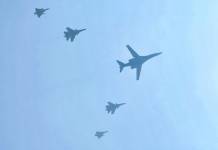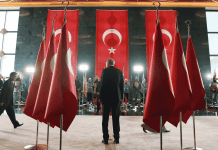Ahead of the proposed India-Iran bilateral Preferential Trade Agreement (PTA) meet this week, the Iranian foreign ministry spokesperson has clarified about their “balanced foreign policy” and that it is not favouring Beijing at the cost of Delhi.
China Deploys 50,000 Troops In Aksai-Chin; India Moves-In T-90 Tanks, M-777 Howitzers
“Iran has a longstanding policy of maintaining balanced, friendly relations w/ all Eurasian & E/S Asian powers. Our potential longterm cooperation agreements w/ China & Russia, & our continued joint work w/ India in Chabahar prove this. We are determined to uphold this policy,” he said in a tweet.
Last month, Indian and Chinese troops got into a violent border clash at the Line of Actual Control (LAC) in the Galwan valley that led to casualties on both sides. New Delhi and Beijing are trying to resolve the issue through military talks and other diplomatic channels.
As reported by Economic Times, Iranian deputy minister and head of Iranian railways Saeed Rasouli, met Indian Ambassador in Tehran to discuss the issue. India’s problem with Iran was its insistence to give the Chahbahar-Zahedan railway contract to Khatam al-Anbiya, a Revolutionary Guard entity, under US secondary sanctions. However, both sides remain committed to the Chabahar Port project.
The second round of talks on Preferential Trade Agreement is expected to be focused on expanding trade to include manufacturing, services and light engineering items. Major Indian exports to Iran include rice, tea, iron, organic chemicals, insecticides, fabrics, man-made staple fibres, electrical machinery and parts thereof, drugs/pharmaceuticals & fine chemicals, paper and paperboard, etc.
Major Indian imports from Iran include crude oil, inorganic/organic chemicals, fertilisers, plastic and articles, edible fruit and nuts, glass and glassware, natural or cultured pearls, precious or semiprecious stones, leather, etc.
India-Iran Preferential Trade Agreement is expected to be beneficial for both the nations since Iran is not a WTO member, hence there is no obligation to keep tariffs in accordance with the specified bound rates. However, with the India China border clash and deteriorating relations between Beijing and New Delhi, the bilateral meet between India and Iran could be impacted.
The trade between India and Iran has increased during the fiscal year 2018-19 which was $17.03 billion as compared to $13.76 billion in 2017-18, an increase of 23.8%. In 2018-19, Indian exports increased by 32.3% and accounted for $3.5 billion, whereas, imports from Iran increased by 21.8% and amounted to $13.5 billion.
As reported earlier by EurAsian Times, after the near conclusion $400 billion deal with China, Iran and Russia are likely to renew their “20-year agreement”, which expires in March 2021, Iran’s Foreign Minister Javad Zarif said during his official visit to Moscow.
Iran is India’s gateway to not only Afghanistan and Central Asia via Chabahar Port but also Eurasia and Russia via the International North-South Transportation Corridor (INSTC). Meanwhile, China’s billion-dollar deal is a breather for Iran’s economy which is hard hit by Trump “maximum pressure” campaign against the Islamic nation.




